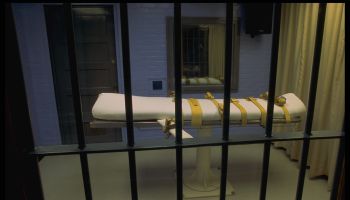Pioneering musician Miles Davis remains as one of the most significant cogs in jazz music, and is most certainly regarded as the best trumpeter the genre has ever seen.
SEE ALSO: How Etan Patz’s Soda Could Have Led Police To Suspect
Innovative in his approach to music, Davis challenged himself constantly and introduced new styles of playing that are still peerless in every way. On what would have been Davis’ 86th turn around the sun, we celebrate the jazz great on his day of birth by remembering his towering musical achievements.
Want to Keep Up With NewsOne.com? LIKE Us On Facebook!
Miles Dewey Davis III was born today on 1926 in the southern Illinois city of Alton to a dentist father and a housewife mother. Raised primarily between East St. Louis and Arkansas, Miles enjoyed a charmed life full of the trappings of affluence. His mother, Cleota Mae, was a trained pianist and wanted her son to learn the instrument. His father, Miles Henry, gave his son a trumpet at 13 – which Miles Davis said was an affront to his pianist mother, who hated the sound of the instrument. After being trained by a local musician, Miles would go on to join the music society at his school and played professionally during off-hours at age 16.
WATCH Miles Davis Perform “So What”
Many large bandleaders tried to recruit the prodigious Davis, but at his mother’s urging, he finished high school before chasing his dreams. Graduating in 1944, he would encounter the Billy Eckstine Band during a stop in East St. Louis; the band featured future jazz legends Charlie Parker and Dizzy Gillespie. While the band took residence in the city, Davis would replace regular trumpeter Buddy Anderson, filling big shoes and doing enough to impress the vets. However, Davis’ parents wanted their child to gain advanced education so he left for New York’s Julliard School of Music that same year.
SEE ALSO: World’s Smallest Artificial Heart Saves Baby’s Life
Arriving in the big city, Davis would join jam sessions and also seek out his idol Charlie Parker, playing in some of Harlem’s famous nightclubs honing his craft. The early seeds of the “bebop” jazz movements were being planted and the players came together to form this new, upbeat and largely improvisational style of music. Davis would eventually drop out of Julliard to focus on a professional jazz career at his father’s blessing. He would go on to join Charlie Parker’s quintet, which also featured drummer Max Roach. During a tough time on tour where Parker suffered a breakdown, Davis would rejoin Billy Eckstine in California and returned to New York after being stranded on the west coast. However, Davis would leave Parker’s quintet amid tension and other issues.
Although a celebrated piece of work now, Davis’ album in 1957 The Birth Of Cool ushered in a new sound in jazz that confused and enthralled many. It was not a commercial success but would prove to cement Davis in the annals of musical lore for his contributions. The 1950s proved to be a turbulent time for Davis, after splitting time between New York and Paris. Rumors of drug addiction swirled about in jazz circles, and he too began to develop a heroin habit himself. Kicking the habit in 1955, Davis would enact the Miles Davis Quintet and sever his ties with the bebop movement after leaving New York to get clean and returning to the big city.
Of Davis’s 48 studio albums and 53 live recordings, his thirty-year relationship with Columbia Records would spawn groundbreaking albums such as Kind Of Blue, Bitches Brew and Quiet Nights with his mentor Gil Evans. Davis would also begin experimenting with rock and funk artists such as Sly and the Family Stone, James Brown, Jimi Hendrix and others. His psychedelic songs of the later periods were often misunderstood but Davis’ vision was fully realized as his career went on. Davis’ music has been sampled heavily by Hip-Hop producers, most notably his 1972 album On The Corner and it is fitting because he wanted his music to be relatable to younger African-Americans.
Davis would pass in Santa Monica, Ca. at the age of 65 from a stroke and respiratory failure associated with pneumonia. His gravesite is located at the Woodlawn Cemetery in his beloved New York. The legacy he’s left behind was an impenetrable cool, a playing style that no musician has been able to mimic since and leaving his mark on music in a way that style baffles critics of today. Miles Davis is a true legend in every sense of the word.
Rest In Power, Miles Davis and Happy Birthday!















